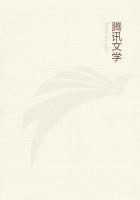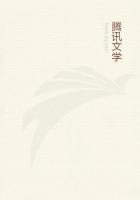On two most important points, Dr. Japp added to my knowledge, and with the same blow fairly demolished that part of my criticism. First, if Thoreau were content to dwell by Walden Pond, it was not merely with designs of self-improvement, but to serve mankind in the highest sense. Hither came the fleeing slave; thence was he despatched along the road to *******. That shanty in the woods was a station in the great Underground Railroad; that adroit and philosophic solitary was an ardent worker, soul and body, in that so much more than honourable movement, which, if atonement were possible for nations, should have gone far to wipe away the guilt of slavery. But in history sin always meets with condign punishment; the generation passes, the offence remains, and the innocent must suffer. No underground railroad could atone for slavery, even as no bills in Parliament can redeem the ancient wrongs of Ireland. But here at least is a new light shed on the Walden episode.
Second, it appears, and the point is capital, that Thoreau was once fairly and manfully in love, and, with perhaps too much aping of the angel, relinquished the woman to his brother. Even though the brother were like to die of it, we have not yet heard the last opinion of the woman. But be that as it may, we have here the explanation of the "rarefied and freezing air" in which I complained that he had taught himself to breathe. Reading the man through the books, I took his professions in good faith. He made a dupe of me, even as he was seeking to make a dupe of himself, wresting philosophy to the needs of his own sorrow. But in the light of this new fact, those pages, seemingly so cold, are seen to be alive with feeling. What appeared to be a lack of interest in the philosopher turns out to have been a touching insincerity of the man to his own heart; and that fine-spun airy theory of friendship, so devoid, as I complained, of any quality of flesh and blood, a mere anodyne to lull his pains.
The most temperate of living critics once marked a passage of my own with a cross ar d the words, "This seems nonsense."
It not only seemed; it was so. It was a private bravado of my own, which I had so often repeated to keep up my spirits, that I had grown at last wholly to believe it, and had ended by setting it down as a contribution to the theory of life.
So with the more icy parts of this philosophy of Thoreau's.
He was affecting the Spartanism he had not; and the old sentimental wound still bled afresh, while he deceived himself with reasons.
Thoreau's theory, in short, was one thing and himself another: of the first, the reader will find what I believe to be a pretty faithful statement and a fairly just criticism in the study; of the second he will find but a contorted shadow.
So much of the man as fitted nicely with his doctrines, in the photographer's phrase, came out. But that large part which lay outside and beyond, for which he had found or sought no formula, on which perhaps his philosophy even looked askance, is wanting in my study, as it was wanting in the guide I followed. In some ways a less serious writer, in all ways a nobler man, the true Thoreau still remains to be depicted.
VILLON. - I am tempted to regret that I ever wrote on this subject, not merely because the paper strikes me as too picturesque by half, but because I regarded Villon as a bad fellow. Others still think well of him, and can find beautiful and human traits where I saw nothing but artistic evil; and by the principle of the art, those should have written of the man, and not I. Where you see no good, silence is the best. Though this penitence comes too late, it may be well, at least, to give it expression.















